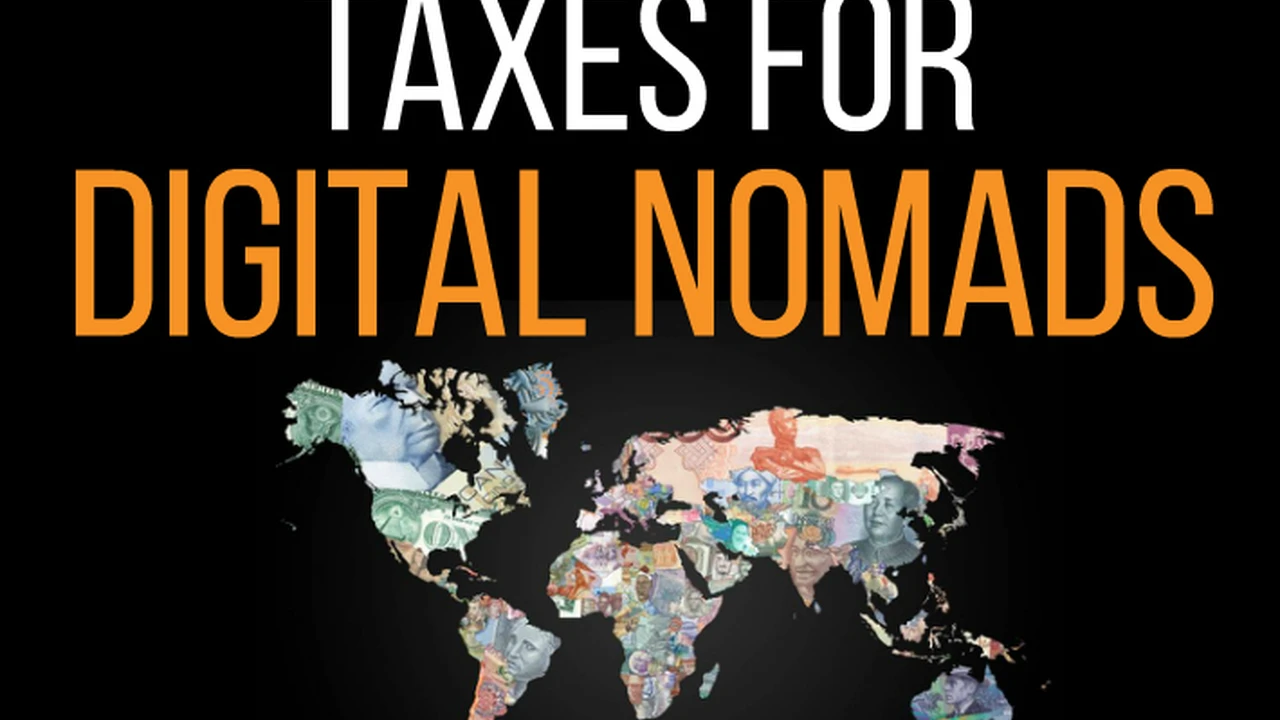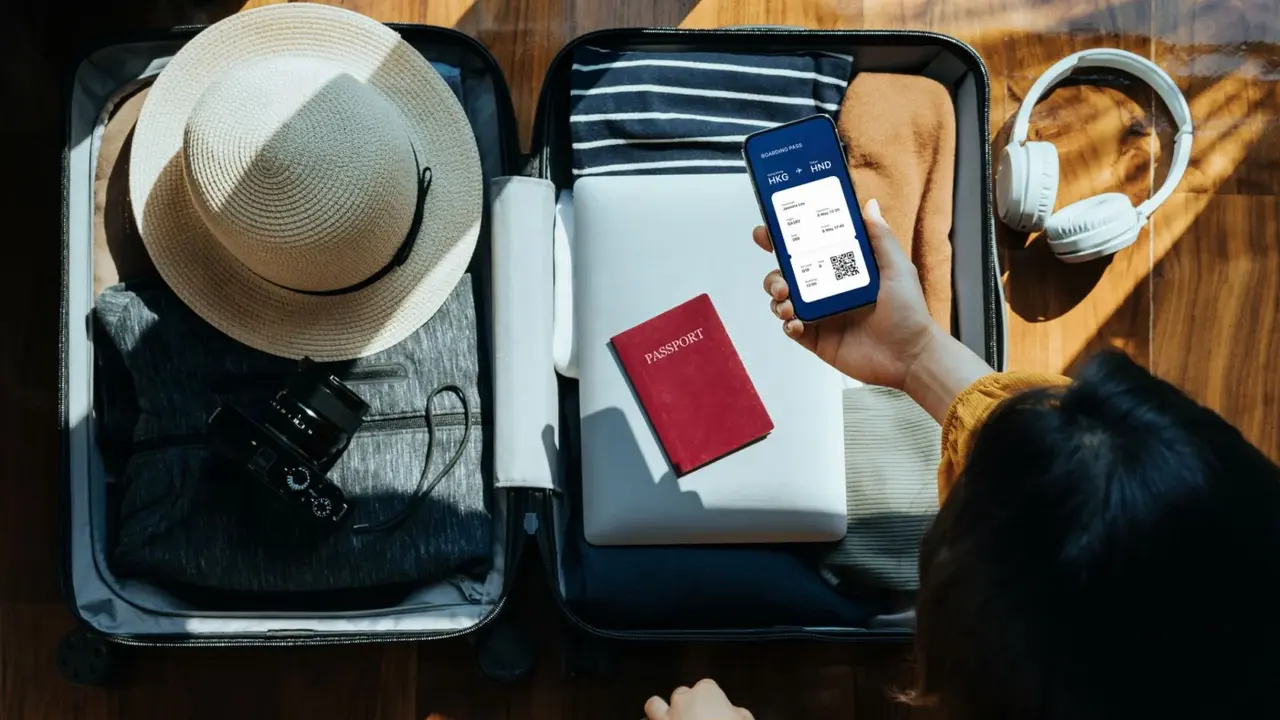Tax Tips for Digital Nomads
Unlock your global office with our Digital Nomad Visa Guide. This essential resource details visa options for US citizens seeking remote work opportunities in Southeast Asia. Understand your obligations, deductions, and strategies for minimizing your tax burden while enjoying your global lifestyle.

Understanding Your Tax Obligations as a US Digital Nomad in Southeast Asia
Okay, so you're living the dream: sunshine, beaches, maybe a bit too much Pad Thai. But hold on a second, Uncle Sam still wants his cut! As a US citizen, you're taxed on your worldwide income, regardless of where you live. That means even if you're sipping coconut water in Bali, you still need to file US taxes. Sounds daunting? Don't worry, we'll break it down.
The Basics: What You Need to Know About US Taxes for Expats
First things first, you'll likely need to file Form 1040, just like you would if you were back home. The big difference is that you'll also need to consider these key factors:
- Foreign Earned Income Exclusion (FEIE): This lets you exclude a certain amount of your foreign earned income from US taxes. In 2024, this amount is around $126,500.
- Foreign Tax Credit (FTC): If you pay taxes to a foreign government, you can claim a credit on your US taxes for the amount you paid. This prevents you from being taxed twice on the same income.
- Foreign Housing Exclusion/Deduction: If you're self-employed or an employee and your housing expenses exceed a certain amount, you may be able to exclude or deduct those expenses.
Navigating the Foreign Earned Income Exclusion (FEIE) for Remote Workers
The FEIE is your best friend. To qualify, you need to meet one of two tests:
- Physical Presence Test: You must be physically present in a foreign country or countries for at least 330 full days during any 12-month period.
- Bona Fide Residence Test: You must be a bona fide resident of a foreign country for an uninterrupted period that includes an entire tax year (January 1st to December 31st).
Meeting the physical presence test is usually easier for digital nomads. Keep track of your travel dates! Apps like Nomad List or even a simple spreadsheet can help.
Claiming the Foreign Tax Credit (FTC) to Avoid Double Taxation
If you're paying income taxes in a Southeast Asian country, you can claim the FTC. This is a dollar-for-dollar reduction of your US tax liability. Keep detailed records of your foreign tax payments. You'll need to file Form 1116 to claim the FTC.
Deductions and Expenses for Self-Employed Digital Nomads
Being self-employed as a digital nomad comes with its own set of deductions. Here are some common ones:
- Home Office Deduction: If you use a portion of your home exclusively and regularly for business, you can deduct expenses related to that space. Think about that awesome Airbnb you use for work!
- Business Expenses: Deduct expenses like internet, software subscriptions, co-working space fees, and even educational courses that improve your skills.
- Travel Expenses: If you travel for business purposes, you can deduct transportation, lodging, and meals. (Keep those receipts!)
Tax-Friendly Destinations in Southeast Asia for US Digital Nomads
Some countries in Southeast Asia have lower tax rates or offer tax incentives for foreign residents. This isn't about avoiding taxes, but about making informed decisions about where you base yourself.
- Singapore: Known for its low tax rates and business-friendly environment, but it can be expensive to live there.
- Malaysia: Offers the Premium Visa Programme (PVIP) which provides a 20-year residence visa to foreigners who meet certain financial criteria.
- Thailand: While Thailand doesn't have a specific \"digital nomad visa\" yet, they offer various long-stay visas and are considering developing new options.
Recommended Tax Software and Services for US Expats
Doing your taxes as a digital nomad can be tricky. Consider using tax software or hiring a tax professional specializing in expat taxes. Here are a few recommendations:
- TurboTax Expat: A popular choice for its user-friendly interface and comprehensive coverage of expat tax issues. Expect to pay around $100-$200 depending on the complexity of your return.
- H&R Block Expat Tax Services: Offers both online and in-person services. Prices vary based on the complexity of your tax situation, but expect to pay several hundred dollars.
- Greenback Expat Tax Services: Specializes in US expat taxes and offers personalized service. Their pricing is transparent and based on your specific needs.
Banking and Financial Tools for Managing Your Money Abroad
Managing your finances while traveling requires the right tools. Here are some recommendations:
- Wise (formerly TransferWise): For international money transfers and multi-currency accounts. Their fees are typically lower than traditional banks.
- Revolut: Another popular option for multi-currency accounts and fee-free spending abroad.
- Charles Schwab International Checking: No ATM fees worldwide and no foreign transaction fees. A great option for accessing cash while traveling.
Health Insurance Considerations for Digital Nomads: Prioritizing Your Well-being
Don't forget about health insurance! US health insurance typically doesn't cover you abroad. Consider these options:
- World Nomads: Travel insurance designed for digital nomads and long-term travelers. Provides coverage for medical emergencies, trip cancellations, and lost luggage. Prices vary depending on your age, destination, and coverage level.
- SafetyWing: A popular option for digital nomads offering affordable health insurance that covers you worldwide. Starts around $45 per month.
- Local Health Insurance: In some countries, you may be able to purchase local health insurance. Research your options in each country.
Staying Organized: Record Keeping for Tax Season
The key to stress-free expat taxes is good record keeping. Keep digital copies of all your financial documents, including:
- Income statements
- Expense receipts
- Travel itineraries
- Tax returns from foreign countries
Use a cloud storage service like Google Drive, Dropbox, or iCloud to store your documents securely and access them from anywhere.
Common Tax Mistakes to Avoid as a Digital Nomad
Here are some common mistakes that digital nomads make when filing their taxes:
- Failing to file: Even if you think you don't owe taxes, you still need to file a return.
- Missing deadlines: The filing deadline for US expats is typically June 15th, but you can request an extension.
- Not claiming all eligible deductions: Make sure you're taking advantage of all the deductions and credits you're entitled to.
- Ignoring state taxes: You may still owe state taxes depending on your state of residence.
Doing your taxes as a digital nomad might seem complicated, but with a little planning and the right resources, you can stay compliant and avoid penalties. Remember to consult with a tax professional if you have any questions.
:max_bytes(150000):strip_icc()/277019-baked-pork-chops-with-cream-of-mushroom-soup-DDMFS-beauty-4x3-BG-7505-5762b731cf30447d9cbbbbbf387beafa.jpg)






